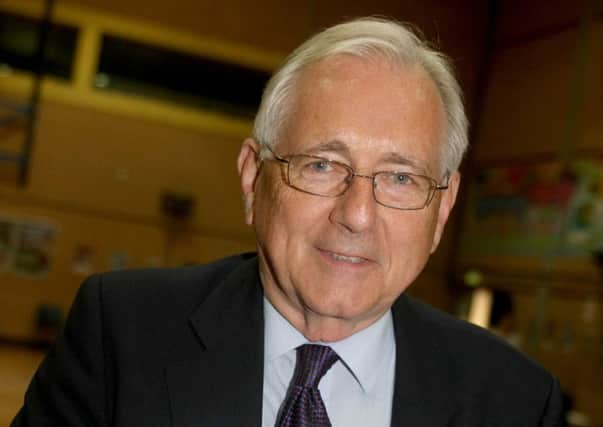SIR PETER BOTTOMLEY: Politics, parliament and remembrance


Until 2001 there was an annual lecture: I heard speeches by Prince Philip, Archbishop Robert Runcie and by the Turkish Ambassador.
At Westminster Cenotaph in Whitehall, I was present when the last surviving soldier, a Turk aged 104, laid a wreath before leading a sprightly procession to the post-service party.
Advertisement
Hide AdAdvertisement
Hide AdIn Windhoek, Namibia on Saturday, I led a tribute at the Commonwealth War Cemetery, before flying overnight to join the Remembrance ceremonies and services in Worthing and in Kingston by East Preston.
In my address, I noted with approval the laying of wreaths by Germans and United Kingdom service personnel before the friendly football game at Wembley.
On Wednesday morning, after the monthly MPs’ Communion at St Margaret’s church in Parliament Square, the Speaker’s chaplain Rose Hudson-Wilkin spoke about Martin Luther and the events now known as the Reformation.
I also listened to an interesting conversation about how Martin McGuinness, the Sinn Fein and IRA leader, developed the conviction that there was a better way.
Advertisement
Hide AdAdvertisement
Hide AdIt is to the credit of Peter Brooke, John Major and Tony Blair that government had enough flexibility and imagination to help the peace process have the time and tolerance to develop.
This week, I have attended the memorial service for Lord Joffe. Joel Joffe had been Nelson Mandela’s lawyer. Later he served as chairman of Oxfam.
Before and during my early years in parliament, I gave weeks each year to working for liberty and justice in southern Africa, especially in what then were Southern Rhodesia and South West Africa in addition to South Africa where I had lived for three years as a child.
That is why I constantly ask the public question: “When will the colour of my skin be no more important than the colour of my eyes or my hair?”
Advertisement
Hide AdAdvertisement
Hide AdIn Namibia I was greeted as an old friend by the Speaker of the National Assembly, Peter Katjavivi and by the President Hage Geingob: we have known each other for over 30 years.
President Pohamba, his predecessor, won the Mo Ibrahim Award for being an Africa leader who retired voluntarily after serving and developing an African country with benefit to ordinary people and with respect to human rights.
Robert Mugabe has sadly been the opposite. Whether he turned worse after the death of his first wife is a question for historians.
I will continue to help parliamentarians here and in Africa to contribute to making lives better, opposing heartlessness and incompetence.
Presidents and prime ministers have the responsibility to lead; MPs have the opportunity to challenge and to support responsible leadership.